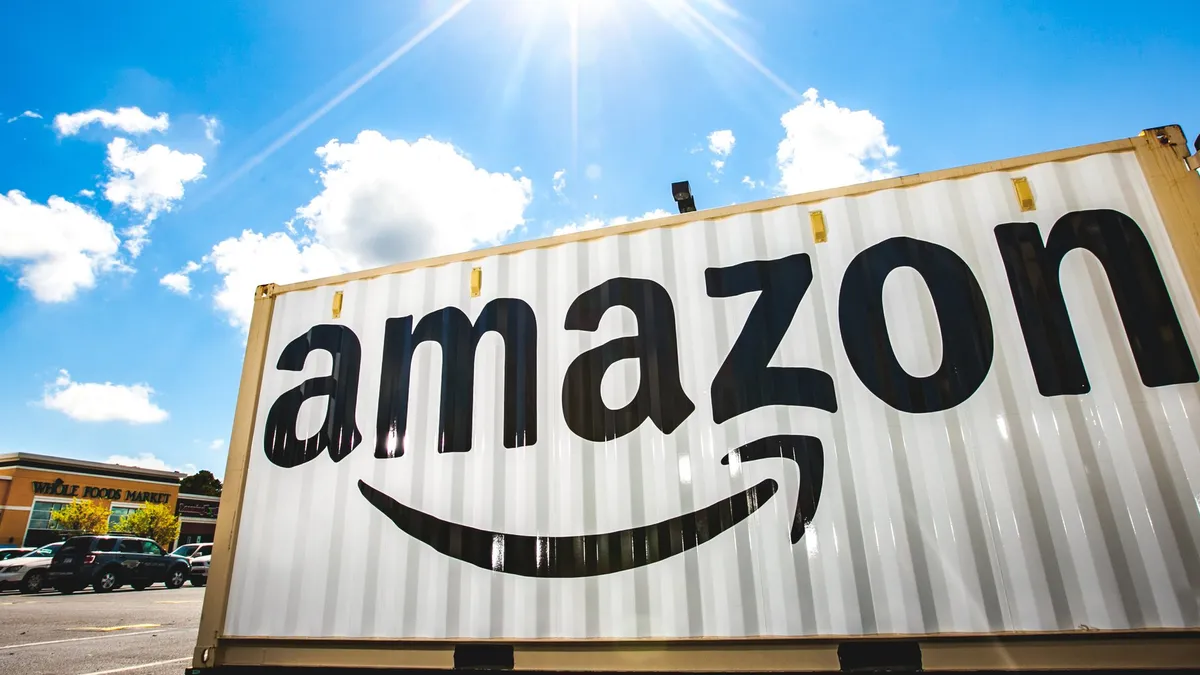Dive Brief:
-
Amazon launched a program to offer in-person seminars, community college courses, and webinars to small businesses, according to a release emailed to Retail Dive. The first event for the Amazon Small Business Academy was a seminar about best practices for growing online businesses, which took place in Southaven, Mississippi.
-
The Academy program includes a grant to the National Association for Community College Entrepreneurship (NACCE) to go toward curriculum development and instruction for digital business courses in community college classrooms. Those courses will launch at six schools in February 2020.
-
Amazon's Academy was developed in response to requests from small business owners, particularly in rural areas, according to a statement by Vice President of Small Business Nicholas Denissen. "Amazon Small Business Academy is focused on accelerating small business' digital capabilities, whether they are a brand new company or one that has been in business for generations," he said.
Dive Insight:
Amazon's new program emphasizes how much it relies on third-party sellers to fuel its growth. The company noted that 58% of all physical gross merchandise sold on Amazon last year came from independent third-party sellers, primarily from small and medium-sized businesses. Sales from those third-party sellers topped $2 billion on Prime Day 2019 alone, and small and medium-sized businesses sell, on average, more than 4,000 items per minute on its marketplace.
The company says it's on track to invest $15 billion in "the success of its selling partners" and touts more than 150 tools and services to help smaller businesses grow their sales via Amazon. Last year, the company launched Amazon Storefronts, a "curated" site for shopping smaller American businesses; in 2015, it introduced Handmade by Amazon for artisan sellers.
Keep in mind that Amazon gets almost half of online sales in the U.S. and it makes sense that it would want to encourage small businesses to thrive — and perhaps also sell their wares via Amazon. Amazon's brand is the third most valuable in the world, according to a list by Interbrand, but that report cited its ever-increasing third-party sales as a risk for the brand. Amazon has long struggled to fight the sale of counterfeit products on its website and has faced allegations that it allows unsafe products to be available.
In June, Retail Dive learned that smaller wholesalers were reportedly being kicked over from Amazon's retail operations to its Marketplace by requiring enrollment in Amazon's brand registry, which requires a trademark. Healthy sales are still possible for those sellers, but without the convenience of Amazon's warehousing. Amazon's new educational program may seek to boost the quality of its third-party sellers while still allowing the company to accelerate additional growth in that arena.















